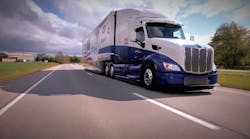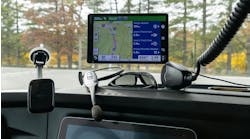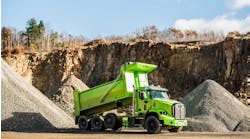Just as new emissions and fuel efficiency standards for medium- and heavy-duty trucks were finalized Tuesday, the U.S. Dept. of Energy (DOE) announced it's looking to put more money where the government's mouth is in terms of reducing carbon emissions and petroleum consumption.
The goal is to spur development of new, cost-effective technologies that will accomplish that for all vehicles, from passenger cars to heavy trucks. DOE counts its first SuperTruck program — which it says led to "more than 20" fuel-saving technologies now available for heavy trucks — a great success, and announced another $80 million in grants earlier this year for the next wave of that project.
SuperTruck II grants will fund four projects to demonstrate new advancements "that more than double the freight efficiency of Class 8 trucks," according to DOE.
In addition to those funds, DOE is putting up another $57 million to fund a diverse range of 35 projects in 19 states across the country, many of them to be carried out at universities. All $137 million in grant money is, of course, subject to the department's appropriations.
These projects will target goals such as:
• Demonstrating plug-in electric vehicles to the public;
• Developing charging systems and grid modernization to support electric vehicles;
• Investigating the use of lightweight magnesium sheet metal for vehicles;
• Demonstrating steel-aluminum and aluminum-carbon fiber dissimilar materials joining for vehicles;
• Advancing production of low-cost electric drive motors;
• Developing next-generation metals and chemicals for batteries; and
• Developing new engine and powertrain systems.
Most of these additional projects target electric vehicle advancement and public awareness and improved battery technology, but a number of them could also be directly applied to the full light-heavy vehicle range, regardless of underhood motivation. Advanced lightweight materials production is one example. Click here to view the full list.
General Motors also stands to receive $1.9 million in grant funds to "develop and demonstrate technologies to enable a downsized, boosted, lean, low-temperature gasoline engine combustion system." And UPS will get nearly $1 million for a project to "eliminate or mitigate the negative effects" of diesel exhaust after-treatment on dual-fuel Class 7 and 8 trucks.
Even 3D printing advancement is included, perhaps not surprisingly. The University of Florida will get a nearly $1 million grant to develop "high-temperature, high-strength and lightweight alloys" for 3D laser printers in making things like internal combustion engines.



